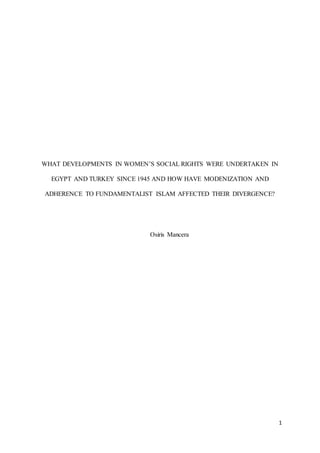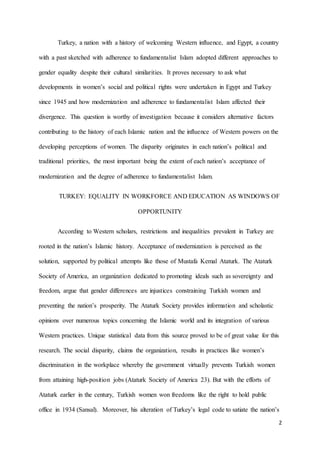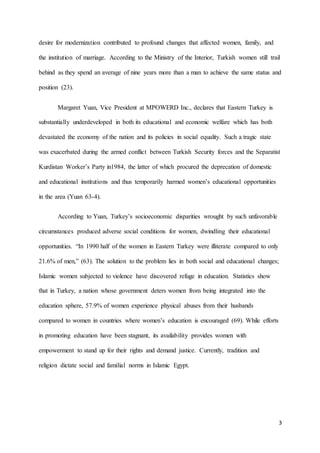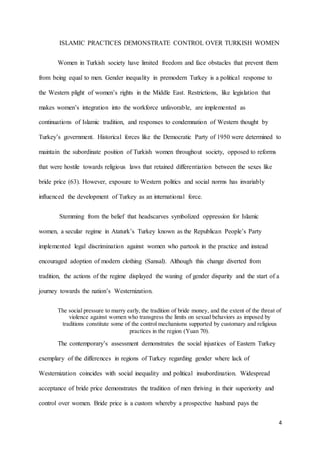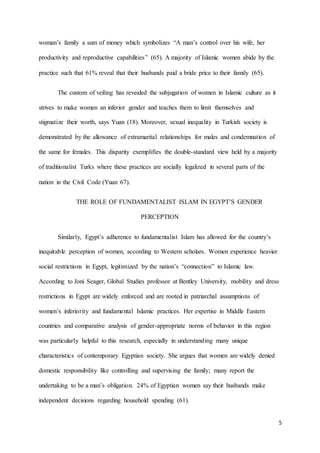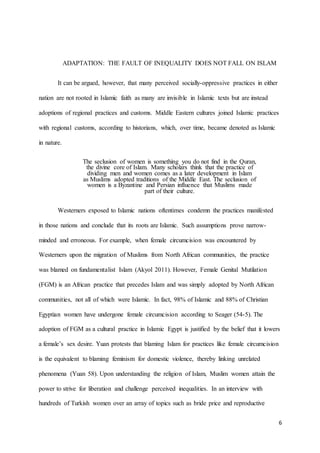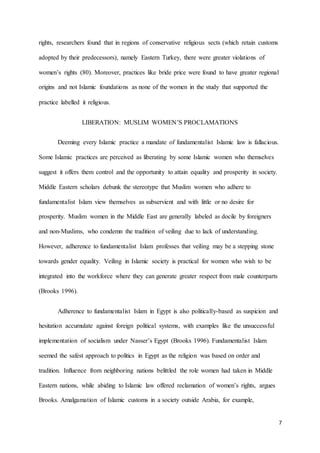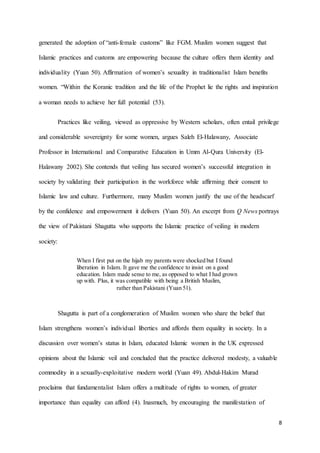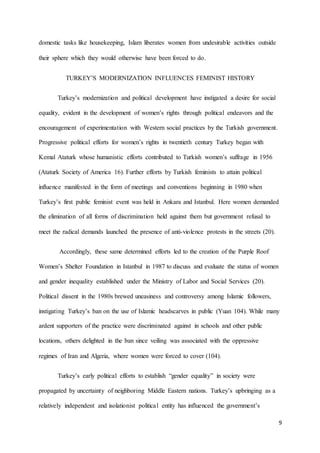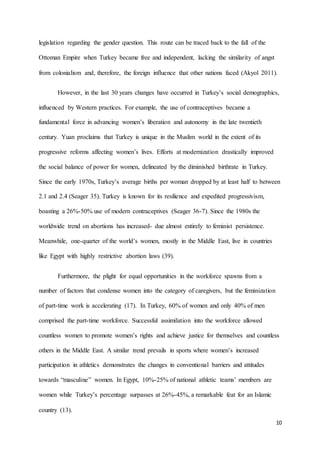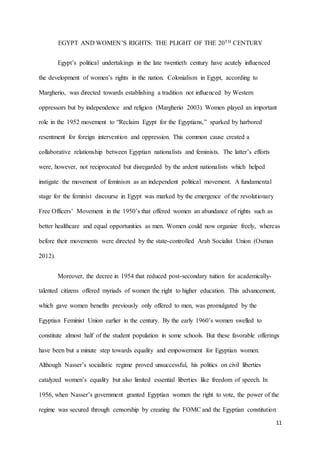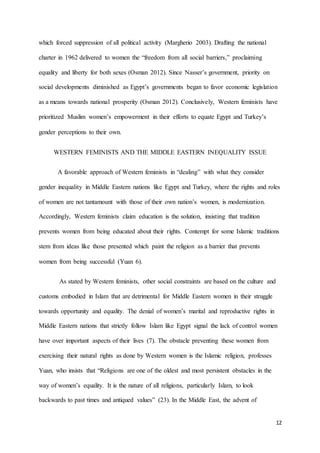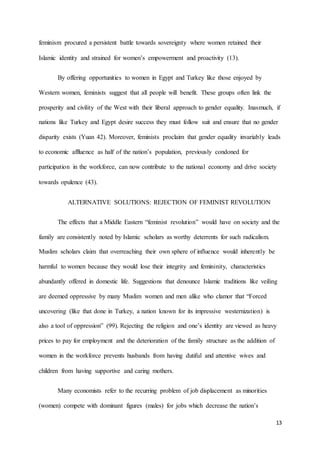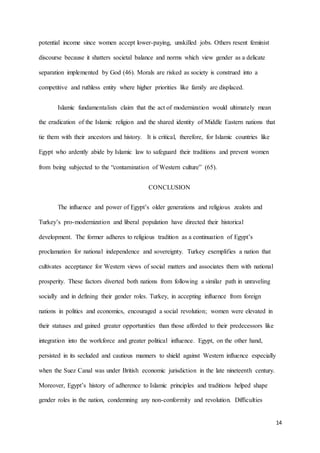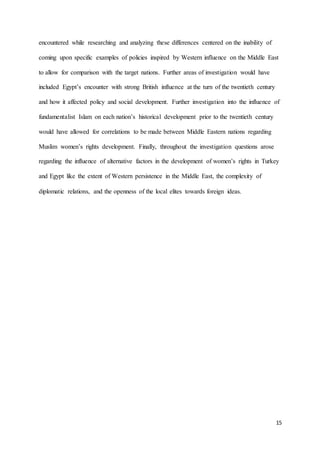1. Turkey and Egypt adopted different approaches to gender equality despite their cultural similarities, influenced by their differing levels of modernization and adherence to fundamentalist Islam.
2. Turkey made greater strides towards gender equality through policies like granting women the right to hold public office in 1934 and increasing access to education, though disparities still exist. Egypt maintained tighter social restrictions on women rooted in patriarchal interpretations of Islam.
3. While practices like restrictions on women's mobility and dress in Egypt have been linked to fundamentalist Islam, many were regional customs adopted by Islamic cultures rather than originating from the Quran. Blaming Islam overlooks the influence of other cultural factors.
